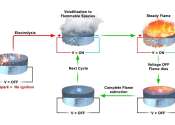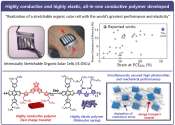Lithium-ion battery research 'flowers'
Lithium-ion batteries work by shuffling lithium ions between a positive electrode (cathode) and a negative electrode (anode) during charging and in the opposite direction during discharging. Our smartphones, laptops, and ...
Nov 5, 2020
0
74









